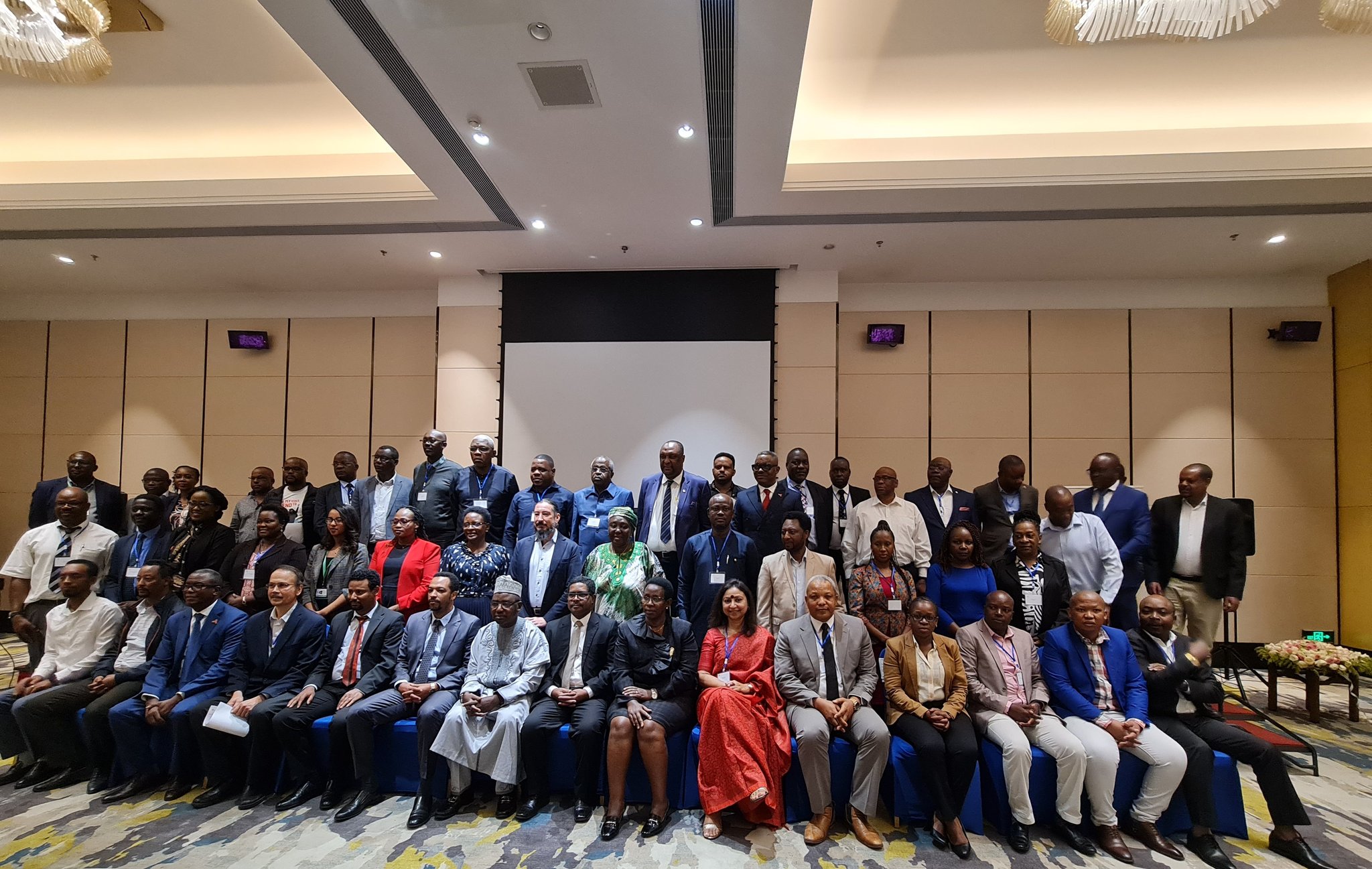Thinking outside the box to end TB
- December 5, 2022
- Tuberculosis
- By Fassika Alemayehu
- Read in French

The African Constituency Bureau (ACB) in collaboration with Stop TB Partnership organized a Tuberculosis meeting for 17 African high-burden TB countries. The meeting principally aimed to support countries for the 2023-2025 Global Fund grant application and exchange views about improving political commitment and domestic financing for TB. The meeting held in Addis Ababa, Ethiopia, from 28th to 29th November 2022, brought together 47 representatives including Principal Secretaries of health, National TB Program Managers, Civil Society Organizations, the African Union, World Health Organisation (WHO) and USAID. In his opening remarks, the host country’s State Minister of Health, H.E. Dr. Derege Duguma, exhorted participants to think outside the box to end TB by exploring new approaches, and by promoting multisectoral and innovative partnerships.
Evidence has shown that TB affects the most active populations in Africa, particularly people aged 25-45 years. In 2021, the WHO estimates that there were 2.5 million new cases of TB in the African region, with 20% (about 560,000 people) mortality. A considerable number of children and adolescents with TB also miss out on lifesaving TB prevention, diagnosis, and care services.
Undoubtedly, there are success stories about TB response in Africa, however inadequate financing, low political commitment, and limited action exacerbated by the impact of COVID-19 threaten progress toward ending TB. To achieve this goal, it is critical to address all the determinants of TB, including poverty, HIV, undernutrition, and to build resilient health systems that can withstand pandemics. Noting that TB is not only a health issue but also a socioeconomic problem, a multisectoral, integrated approach with a focus on social protection should be part of the TB response. The role of communities is vital in the fight against TB. A case in point is Uganda’s commendable effort to mobilize community healthcare workers for TB case detection and treatment adherence.
The importance of new technologies, diagnostics, and medicines in the effort to end TB is undeniable. Nevertheless, they are not readily accessible to those who need them. Key partners such as USAID have expressed their readiness to provide technical assistance for countries to make use of new technologies. In this regard, a call was made to WHO to support and accelerate the adoption of these new technologies at the country level and for countries to familiarize themselves with WHO’s new guidelines and frameworks on several aspects of TB.
As to the fundamental funding issue, the lack of financial resources for TB was the subject of intense debate. It was apparent that TB gets the lowest funding compared to HIV and Malaria. According to Stop TB Partnership, the widespread funding gap for TB amounts to USD249.98 million, and the cost of inaction is estimated at 1 trillion USD. These staggering gaps give no alternative than to look for diverse and innovative paths, hence the indispensable quest for Domestic Resource Mobilize (DRM). In view of DRM, an initiative from the Democratic Republic of Congo was the adoption of an innovative law that aims to reduce the funding deficit in the fight against TB by increasing taxation on fuel, alcoholic beverages, and tobacco. Despite the funding gaps, countries must continue collecting adequate data and develop ambitious targets which are included in costed strategic plans for TB. A Clarion call was made to not give up and to endeavour to close the funding gap!
Observing the weakness of TB advocacy, the importance of evidence-based advocacy at the national, regional, and global levels with new messaging and investment case that put TB at the forefront and not as an appendage to other disease programs was highlighted. Needless to say, parliamentarians should be key targets in advocacy plans as well as the provision of funds for advocacy activities by civil society to ensure that TB receives the attention it deserves.
In the framework of the 2023-2025 Global Fund Grant application (NFM4), Global Fund’s new strategic focus areas on putting communities at the center and the emphasis on Resilient and Sustainable Systems for Health (RSSH), Gender Equality, and Human Rights was recalled. Even though the strategy still aims to support national priorities and goals, the grant application process remains the same. Additional information such as funding priorities from civil society and communities, the outcome of country dialogue narratives, RSSH gaps and priorities are required. In light of the integration of mental health in HTM programs in the new Global Fund strategy, during engagements of country stakeholders on NFM4, making the case for the integration of mental health at every stage of the TB and HIV service continuum is essential to end these epidemics at a ”faster rate, and cost-effectively”.
Lastly, the 17 high-burden TB countries adopted a communique which requested the African Union, Stop TB Partnership, African Constituency Bureau, WHO, USAID, and relevant stakeholders to coordinate the development of a Common African Position for the UN High-Level Meeting on TB which is going to be held in 2023 in New York City.
Full communiqué is available here
Fassika Alemayehu


